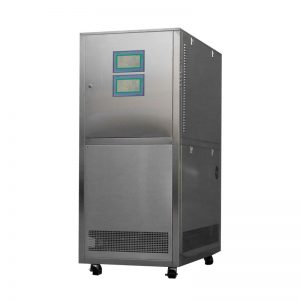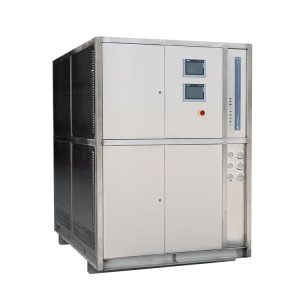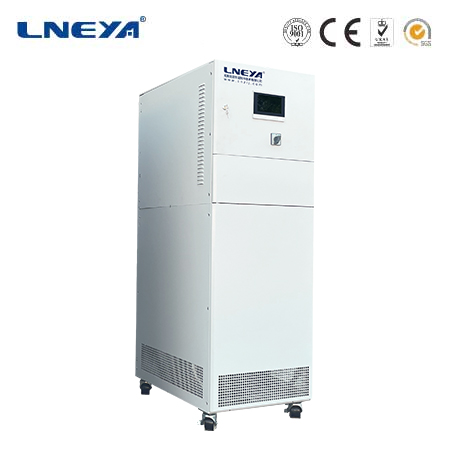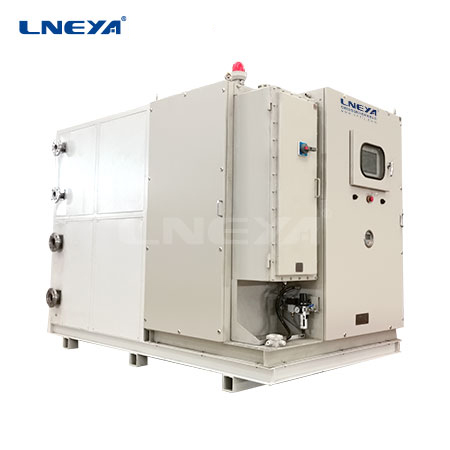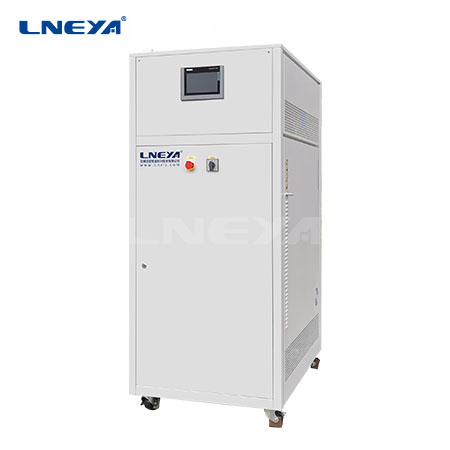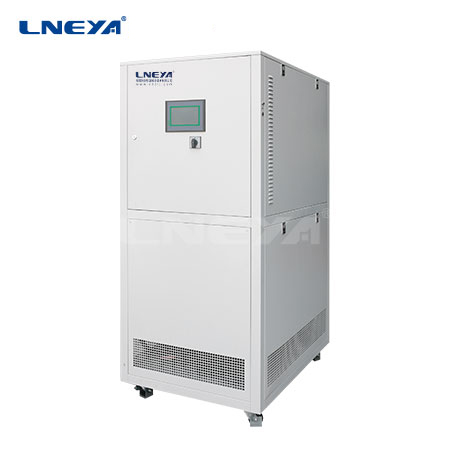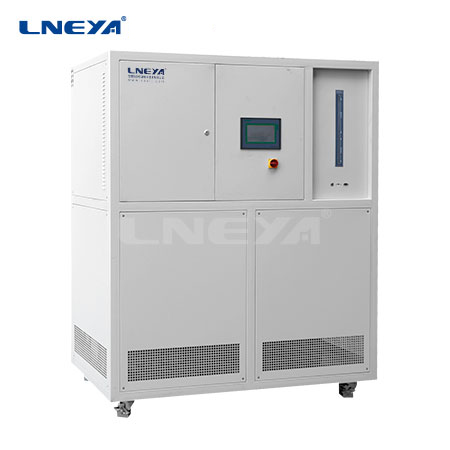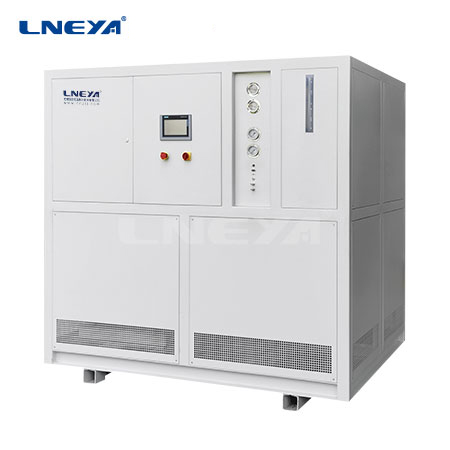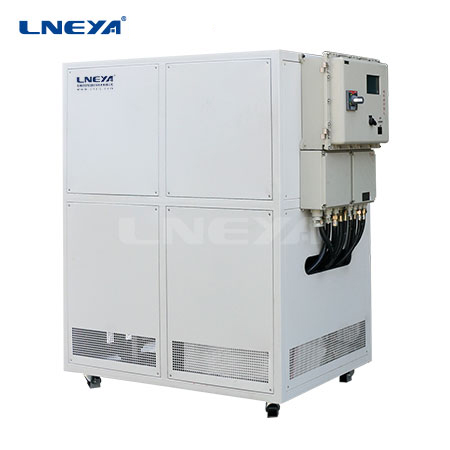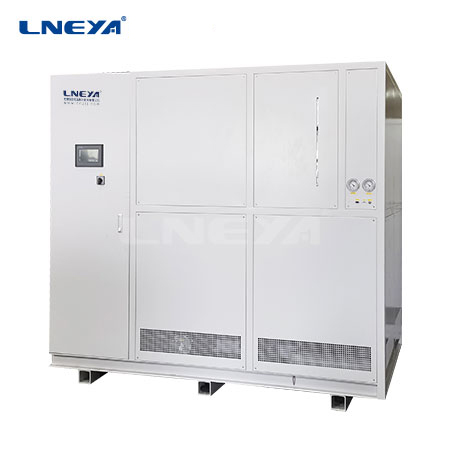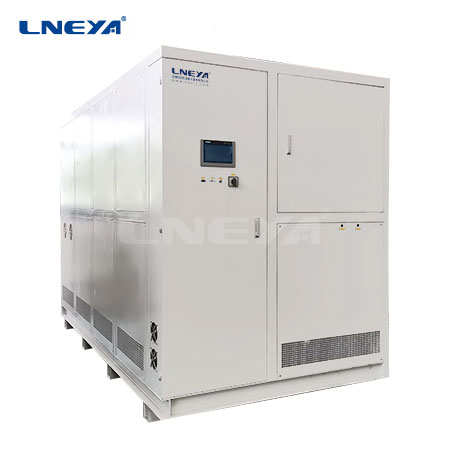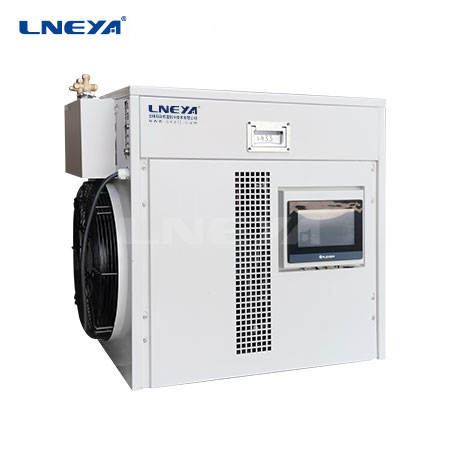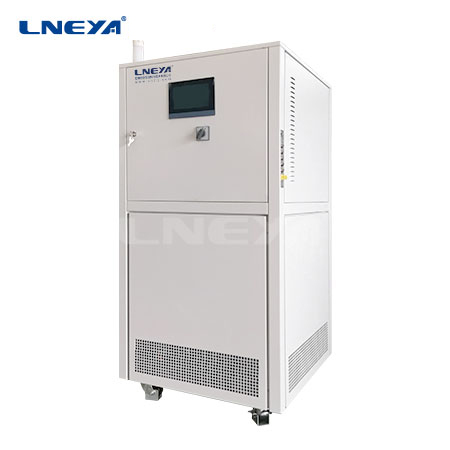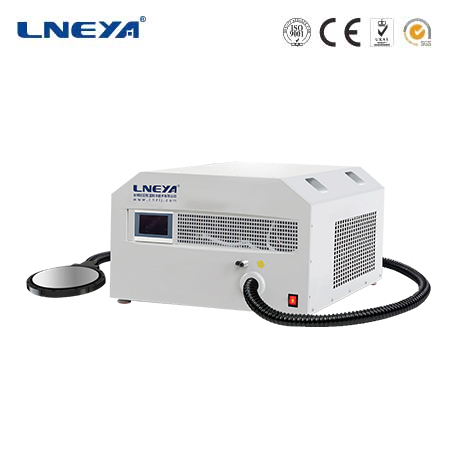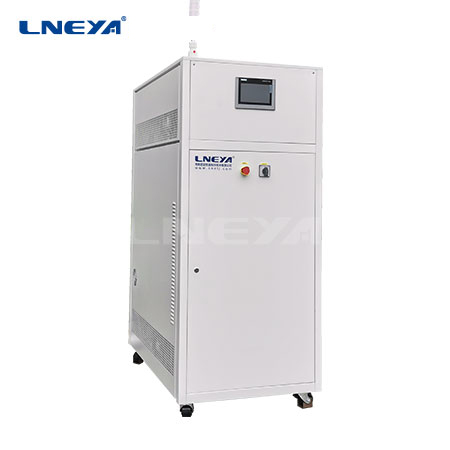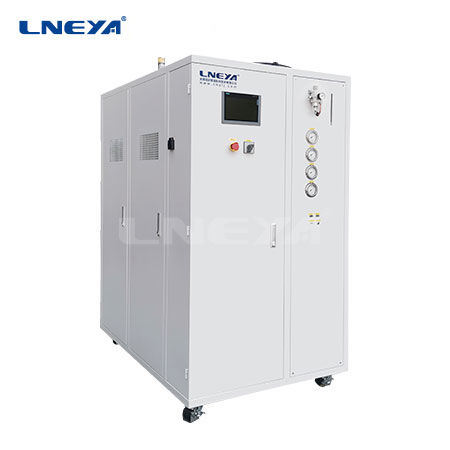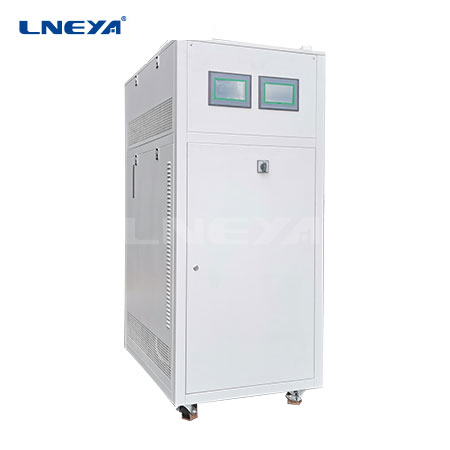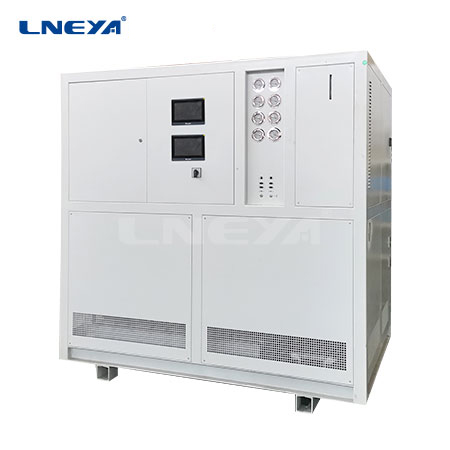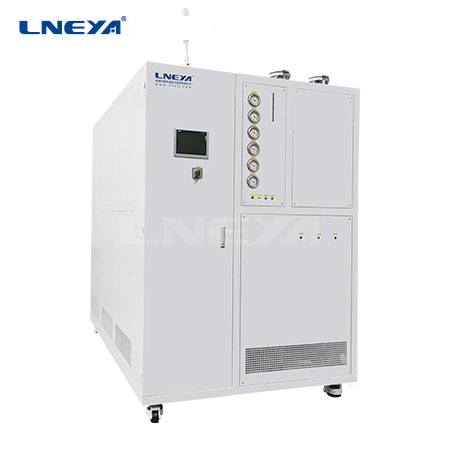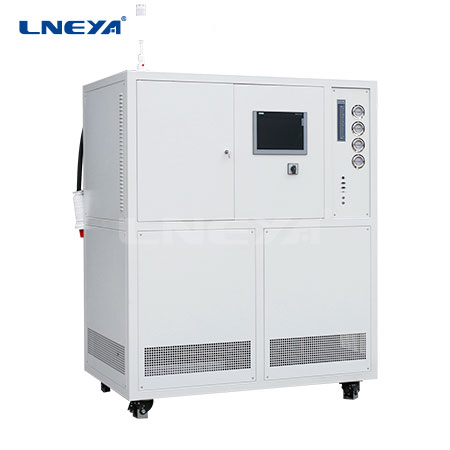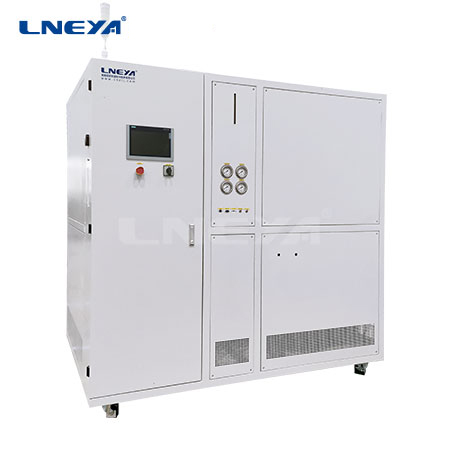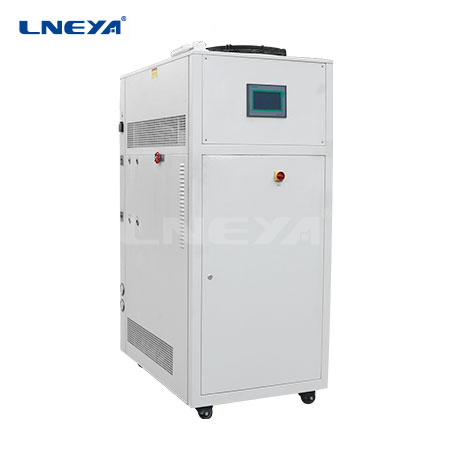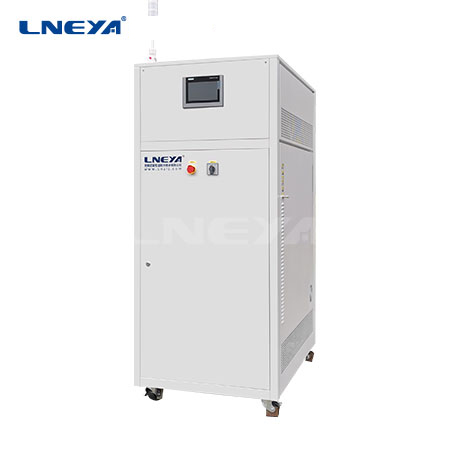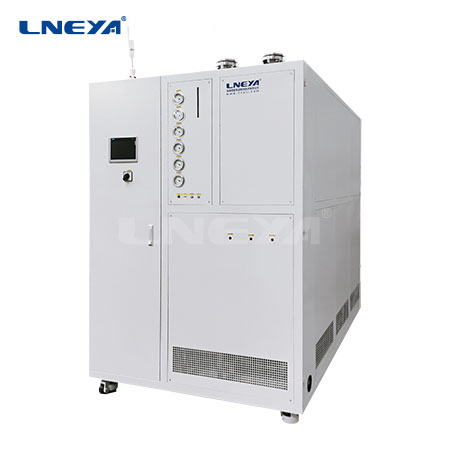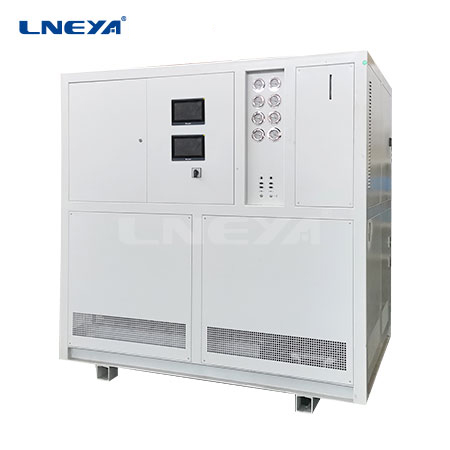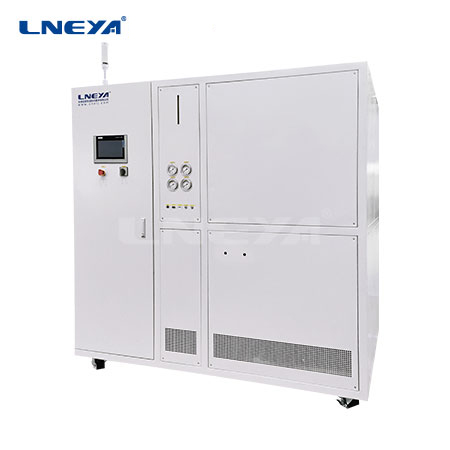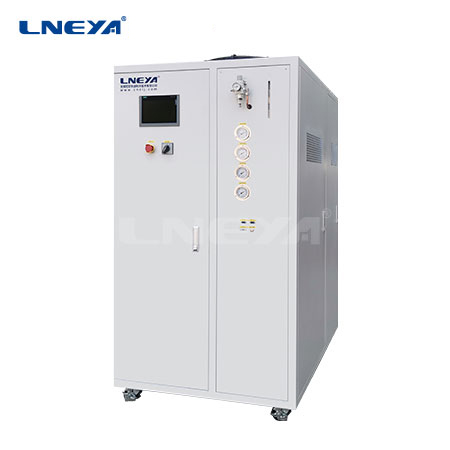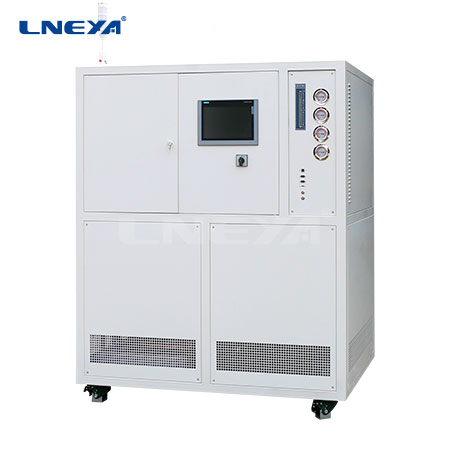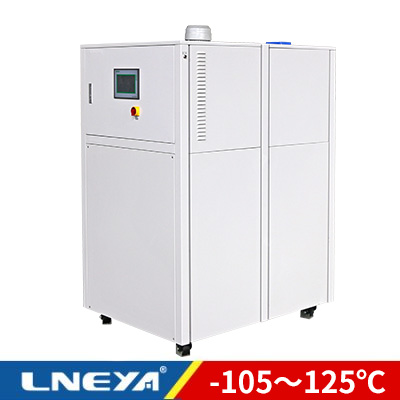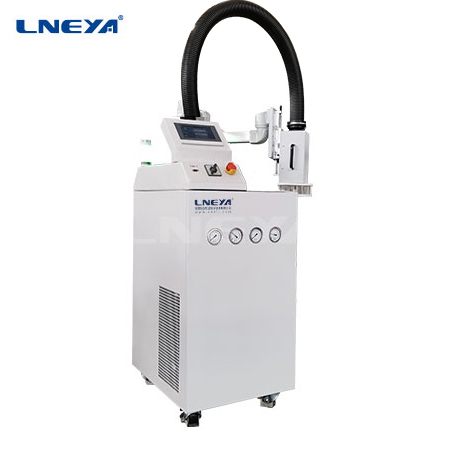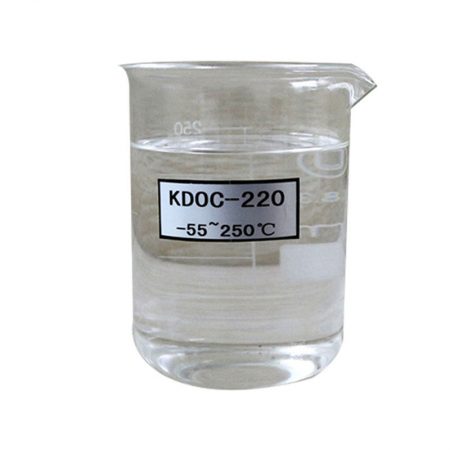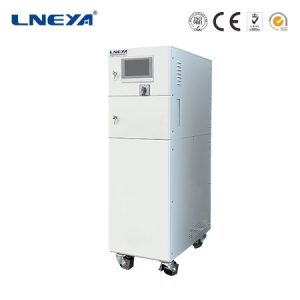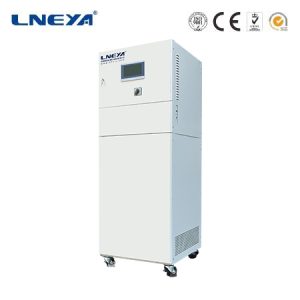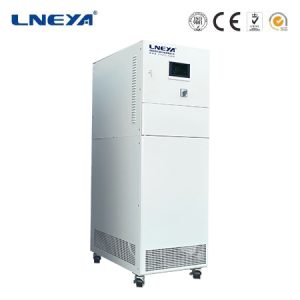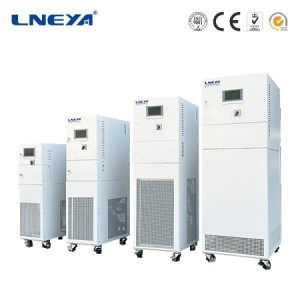Sistema industrial de refrigeración líquida
An industrial liquid cooling system is a way of dissipating heat from electronic equipment by flowing a liquid (usually water) through the heat sink of the electronic equipment, absorbing the heat generated by the equipment, and then removing the heat, thereby reducing the temperature of the equipment. Compared with traditional air cooling methods, liquid cooling can more effectively reduce the temperature of the equipment and improve the performance and life of the equipment.
Liquid cooling technology is mainly divided into two types: direct liquid cooling and indirect liquid cooling. Direct liquid cooling refers to flowing liquid directly through the radiator of the electronic device to remove the heat. Indirect liquid cooling involves flowing a liquid through a heat exchanger, transferring heat to another liquid through the heat exchanger, and then taking the heat away. Direct liquid cooling is more efficient but requires higher maintenance costs and a more complex design.
Liquid cooling technology has been widely used in high-performance computing, data centers, artificial intelligence and other fields. As the performance of electronic equipment continues to improve, heat dissipation issues have become more and more prominent. Liquid cooling technology will become one of the mainstream methods of heat dissipation for electronic equipment in the future.

The principle of industrial liquid cooling system:
The principle of industrial liquid cooling system is to reduce the temperature of the equipment by flowing liquid (usually water) through the radiator of electronic equipment, absorbing the heat generated by the equipment, and then taking the heat away. Liquids conduct heat better than air, so liquid cooling can remove the heat generated by the device faster.
Liquid cooling systems usually consist of radiators, water pumps, water pipes, and water tanks. Liquid cooling systems move liquid through a radiator, and the fins in the radiator allow the liquid to more easily absorb the heat generated by the device. The water pump then flows the liquid with the heat into the tank, where a radiator dissipates the heat to the surrounding environment. Liquid cooling systems can control the temperature of the device by adjusting water flow and water temperature.
Liquid cooling technology is mainly divided into two types: direct liquid cooling and indirect liquid cooling. Direct liquid cooling refers to flowing liquid directly through the radiator of the electronic device to remove the heat. Indirect liquid cooling involves flowing a liquid through a heat exchanger, transferring heat to another liquid through the heat exchanger, and then taking the heat away. Direct liquid cooling is more efficient but requires higher maintenance costs and a more complex design.
Advantages of industrial liquid cooling system:
Compared with traditional air cooling methods, industrial liquid cooling system has the following advantages:
Higher heat dissipation efficiency: Liquid cooling technology can reduce the temperature of the device more effectively and improve the performance and life of the device. Liquids conduct heat better than air, so liquid cooling can remove the heat generated by the device faster.
Lower noise: Compared with the noise generated by fans, liquid cooling has lower noise and can provide a quieter working environment.
More flexible design: Liquid cooling technology allows for more flexible design, and the radiator and liquid pipeline can be installed in different locations to better adapt to the design requirements of the equipment.
More environmentally friendly: Liquid cooling can save energy and reduce environmental impact. The liquid can be recycled more easily than the heat generated by the fan.
The disadvantages of liquid cooling technology are higher costs, higher maintenance costs and more complex designs. However, as the performance of electronic equipment continues to improve, heat dissipation issues have become more and more prominent. Liquid cooling technology will become one of the mainstream methods of heat dissipation for electronic equipment in the future.
Correo electrónico: info@lneya.com WeChat ID: +8615251628237 WhatsApp: +86 17851209193
 Enfriadoras de precisión / Enfriadoras pequeñas
Enfriadoras de precisión / Enfriadoras pequeñas
El enfriador puede utilizarse ampliamente en diversas industrias y laboratorios, y admite diseños personalizados.
| Temperatura | -18°C ~ +30°C | Serie +5°C ~ +35°C |
| Capacidad de refrigeración | 0,35 ~ 0,9 kW | 1,8 ~ 50 kW |

Enfriadoras de recirculación
Nuestro enfriador de recirculación adopta tecnología de refrigeración de baja temperatura, la temperatura es tan baja como -120℃, y varios accesorios son personalizables.
| Temperatura | Serie -25°C ~ +30°C | Serie -45°C ~ +30°C | Serie -60°C ~ -20°C | Serie -80°C ~ -20°C | Serie -120°C ~ -70°C |
| Capacidad de refrigeración | 0,8 ~ 30 kW | 0,75 ~ 12 kW | 0,4 ~ 6kW | 0,2 ~ 6kW | 0,3 ~ 5kW |

Refrigeradores de baja temperatura
Estamos especializados en la producción de refrigeradores de baja temperatura con un rango de control de temperatura de hasta -150°C, que pueden satisfacer las necesidades de refrigeración de diferentes industrias.
| Temperatura | Serie -25°C ~ -5°C | Serie -45°C ~ -10°C | Serie -60°C ~ -10°C | Serie -80°C ~ -30°C | Serie -110°C ~ -50°C | Serie -150°C ~ -110°C |
| Capacidad de refrigeración | 12 ~ 360 kW | 6 ~ 180 kW | 6 ~ 180 kW | 4 ~ 180kW | 2 ~ 120kW | 2,5 ~ 11 kW |
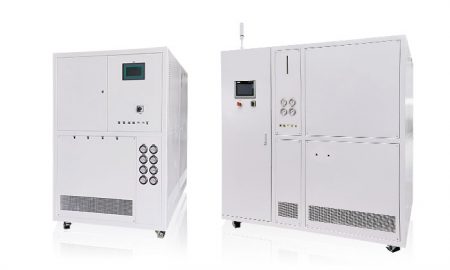 Enfriadoras para pruebas en automoción
Enfriadoras para pruebas en automoción
Simulación de temperatura para pruebas de calidad de vehículos: prueba de duración de baterías, banco de pruebas de inyectores/motores de combustible, prueba de airbags, banco de pruebas de componentes, etc.

Enfriadoras para semiconductores
Adecuado para el control preciso de la temperatura de los componentes electrónicos. En la fabricación de componentes electrónicos semiconductores para entornos adversos, las fases de ensamblaje de embalajes de CI y de pruebas de ingeniería y producción incluyen pruebas térmicas electrónicas y otras simulaciones de pruebas ambientales.
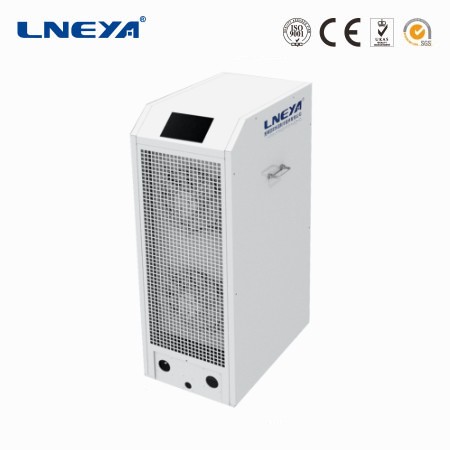
Refrigeración líquida para sistemas de almacenamiento de energía en baterías
| Tipos | Para estación de conversión | Para batería de almacenamiento de energía | Para estación de carga |
| Capacidad de refrigeración | 45 kW | 5 ~ 8,5 kW | 4kW |

Serie ZLFQ
Unidad de distribución de refrigerante
El equipo de refrigeración líquida es adecuado para pruebas de semiconductores, pruebas de temperatura constante de equipos electrónicos, infraestructura de soporte de servidores de refrigeración y otros lugares de control de temperatura de fluidos.
| Temperatura | +5°C ~ +35°C | +5°C ~ +35°C |
| Capacidad de refrigeración | 15 ~ 150 kW | 200 ~ 500 kW |

Serie de mandriles térmicos MD
Se utiliza para probar dispositivos de radiofrecuencia y dispositivos de potencia de alta densidad (IGBT y MOSFET), y también puede utilizarse para el enfriamiento rápido de paneles planos de laboratorio (plasma, productos biológicos, baterías), etc.
| Temperatura | -75°C ~ +225°C |
| Precisión de la temperatura | ±0.1℃ |

Refrigeradores de tornillo (Diseños a medida)
Refrigeradores de tornillo de baja temperatura y refrigeradores de tornillo a temperatura ambiente
| Temperatura | +5°C ~ +30°C | +5°C ~ +30°C | +5°C ~ +30°C | +5°C ~ +30°C | -25°C ~ +5°C | -25°C ~ +5°C |
| Capacidad de refrigeración | 107 ~ 1027 kW (compresor único) | 299 ~ 2134 kW (compresor doble) | 98 ~ 934 kW (compresor único) | 272 ~ 1940 kW (compresor doble) | 48 ~ 467 kW (un compresor) | 51 ~ 497 kW (compresor único) |
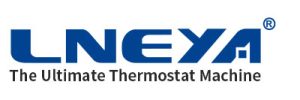 LNEYA
LNEYA
 简体中文
简体中文










